Craft in the Age of Coronavirus - On Copywriting with Vikki Ross
04 Dec 2020
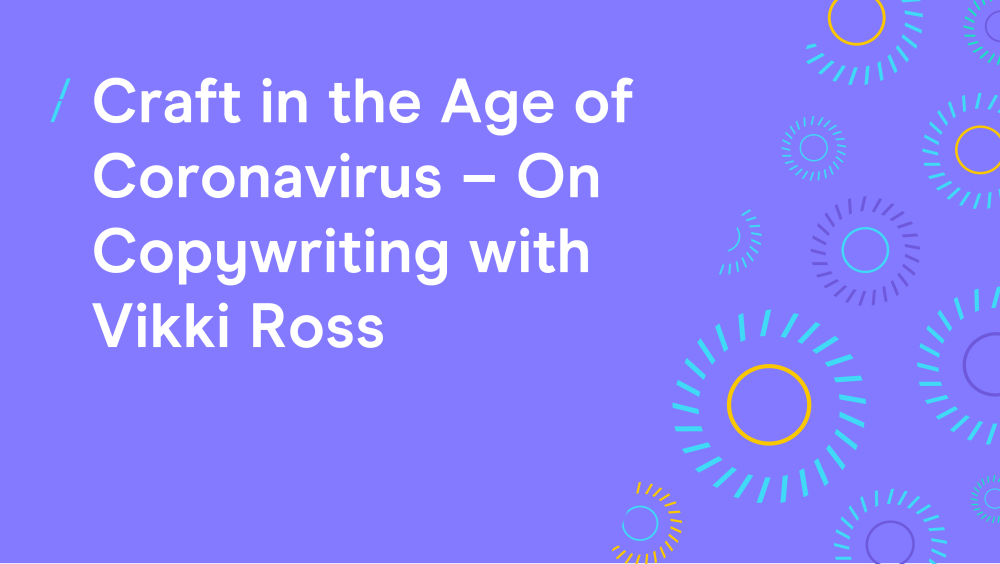
Our series, Craft in the Age of Coronavirus, shines a light on creatives educating, entertaining, and encouraging us throughout the pandemic, keeping us informed – and inspired. A huge thank you to our talented contributors for sharing the process behind their much-needed work.
The next long-read article features Vikki Ross, renowned Copywriter, Brand and Tone of Voice Specialist, Trainer (including for D&AD Masterclasses), Speaker (most recently Adidas and Zenith Media), and Mentor.
Vikki has been writing copy for major global brands for 24 years, such as The Body Shop, Virgin Media, and Sky. In 2017, Creative Equals named her one of the Top 30 Female Creative Leaders; in 2019, Women in Marketing gave her a Special Award for Outstanding Contribution to Marketing (Agency); and in 2020, The Dots named her one of their Top 100 Trailblazers redefining the creative industry.
Here’s our interview with Vikki on the craft of copywriting, and how it has changed in the context of the coronavirus. Get to know her thoughts on what separates a good copywriter from a great one, how to transform the mundane into the exciting, where to find inspiration, and more.
Plus, discover a few of her favourite things, including brands and campaigns that have successfully adapted their communications to fit into our new world, and not so favourite things, like the same line used all the time during the holidays.
You can also check out our short zine piece, here.
On Vikki
When you were a child, what did you want to be?
A hairdresser.
I was seduced by my bright pink and purple plastic toy hair salon thing.
Could you describe the moment you first realised you wanted to be a copywriter?
A what?
No one tells anyone what a copywriter is, so it’s hard to know you want to be one. I knew I wanted to write for magazines, but I didn’t know there was a difference between writing ads and writing features. I was very young when I went to work. No uni or degree, no ad school or portfolio, no connections or internships.
So I guess I realised I wanted to write copy when I was working as an office assistant at a tiny direct marketing agency in North London. The creative director wrote reader offers in the national press. I asked if I could give one a go, and he let me. I wrote a full-page reader offer for Caravanning & Camping Magazine. It performed well, so I wrote more offers in more magazines.
How did you learn to excel at your craft?
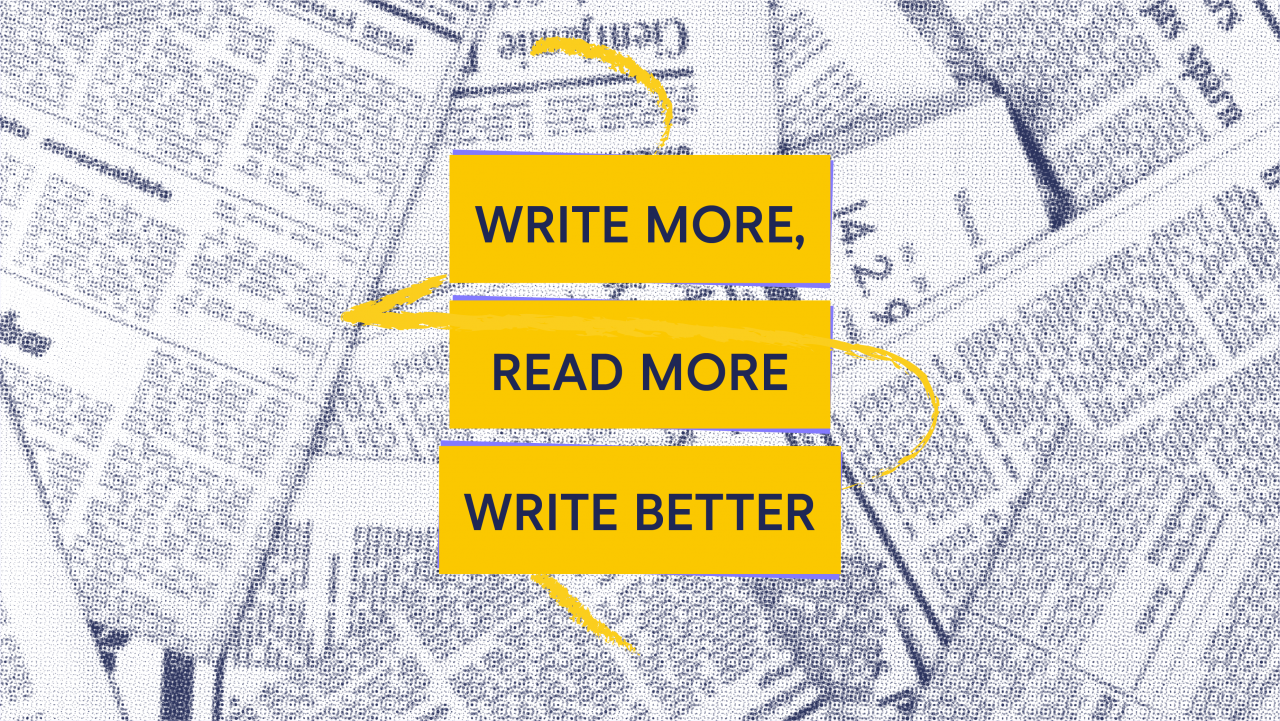
Reading and writing.
The more you read and write, the better you write.
Do you have a process in place when writing copy, or is it different each time?
It depends.
Sometimes, I’ve just got it. Other times, I just don’t. When I’ve got it, I can’t sleep. I’ll wake up early and start writing easily for hours. Other times, I really struggle and wonder how on earth I ever wrote anything.
Where do you get your inspiration from?
Anywhere and everywhere.
I walk around listening to what people are saying on the street or in the supermarket. They’re the people we’re writing to, so they’re who we should get our inspiration from.
What is the most fun you’ve had on the job?
I’ve had a lot of fun on the job.
Going on shoots. Going to film premieres. Going around the world to talk at brands, agencies, events, and conferences. It’s all the most fun.
What is the best and worst advice someone has given you on copywriting?

The best: Marc Lewis at School of Communication Arts 2.0 tells his students they have to write hundreds of lines to get to The One. It’s true. No shortcuts.
The worst: I once worked for a head of copy who didn’t think it important to know how to spell, because computers have Spellcheck.
How has copywriting changed throughout your career?
I think it has got harder to own and protect.
Everyone in every bit of the process thinks they can write, so everyone gets involved. Everyone can write, but not everyone can write copy.
What is the biggest risk you’ve taken in your writing that has paid off?
The biggest risk is in fighting, not writing.
I fight for copywriting – and copywriters – to be valued, respected, and protected every damn day.
On Copywriters
What is the #1 mistake many copywriters make?
Thinking a first draft is good to go.
It isn’t.
What separates a good copywriter from a great one?
A good copywriter stops too early.
A great copywriter never stops. Even after copy has been signed off.
Do you think that great copywriters need to be naturally talented and/or have taken writing courses in an academic setting?
I think copywriters need to be naturally nosy.
I don’t think they need any formal training. In fact, some formal training can work against them. Copywriting is about breaking rules just as much as following them.
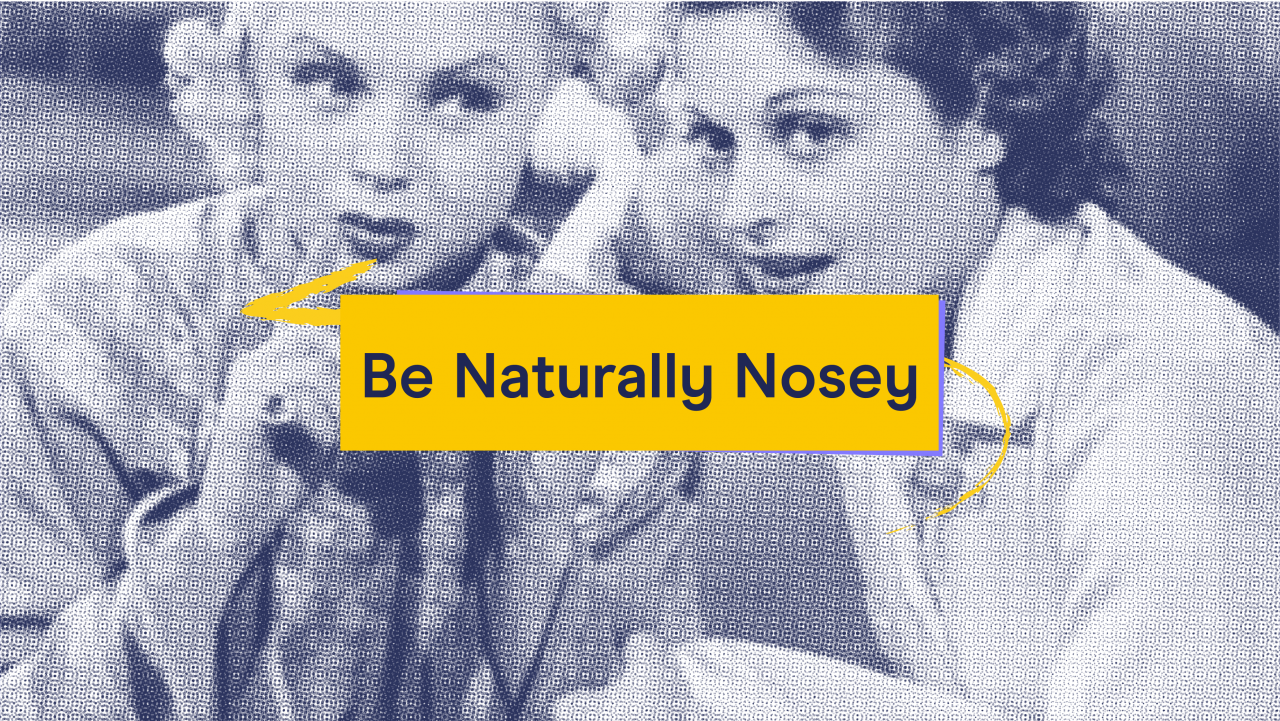
Do you think a good copywriter can write about anything? If yes, how do the skills of writing about food, for example, transfer to the skills of writing about fashion?
I absolutely do.
It’s all about research. The more you learn, the better you write. About anything.
Having said that, nothing can replace the knowledge of a true fan, so if someone else knows more than you could ever possibly know, hand over the brief.
On Copywriting
How can you say as much as possible using as little words as possible?
Make your words count.
Get rid of the words that are in the way. You know, the fillers. The ones that aren’t doing anything. The “that” or “you can” or “in order to.” And lose the adjectives. Adjectives aren’t interesting. Facts are interesting. And believable. Fill your copy with words that count, and you’ll only ever say what you really need to.
How can you transform mundane topics into something exciting?
Emotion.
Find the emotion your audience will relate to. What might seem boring to you means something to someone else. I used to think you could never make things like banking or insurance sound interesting, never mind exciting, but then I saw adam+eveDDB’s beautiful ad for John Lewis Home Insurance and realised how short-sighted I was.
Now I look out for the ordinary made extraordinary – emotion is always at the heart of it.
Take a look at this stationery ad by BBDO Toronto, and watch Miles Carter of adam+eveDDB talk about finding the emotion for the 2015 John Lewis Christmas ad: The Man on the Moon.
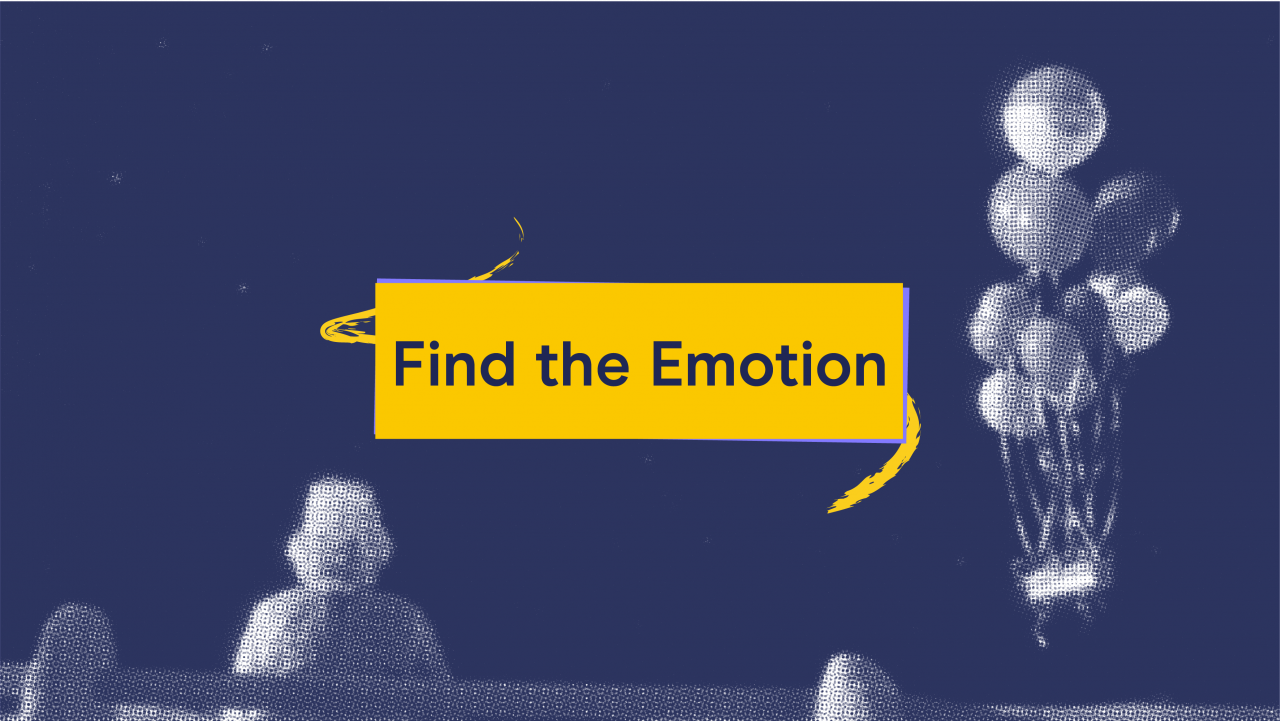
When you feel discouraged and/or exhausted, how can you maintain your passion for writing?
I flick through a magazine.
Headlines are enough to get words going again. Or I go for a walk. Fresh air and a change of scenery gets ideas going again.
On Covid Comms
How has copywriting changed? Do you think these changes are permanent?
There’s more to say and more places to say it.
Businesses are updating their websites with information to reduce calls to customer services while many call centres are closed. They’re emailing customers to make up for a lack of in-person conversation in stores. They’re posting on social media to keep connected with everyone everywhere. And they’re doing all this – and more – with words. Copy.
I think most of these changes will be permanent, so I think copywriters will be busy. If businesses need more words, they need more copywriters to make those words work.
In a world that’s completely dominated by the coronavirus, how can brands communicate their original purpose? Is this still possible?
Absolutely.
A brand purpose – much like its identity – should last forever. Changing it to show a response to the times weakens what a brand originally is claimed to stand for. Adapting it to include pandemic clichés like “now, more than ever” ruins it – and your brand reputation – completely.
You’ve recently launched the Bland Book. How can this be applied to covid comms?
Don’t be bland.
I specialise in branding and write brand books all the time, and I’m just so disappointed when brands don't have aspirations to be anything remarkable. They don't have to be big and bold and shouty, but they have to be something, otherwise they're nothing – and they go unnoticed.
So last year, I approached Paul Mellor of Mellor & Smith about showing everyone what it looks like when they default to bland. You know, when a brand says they’re human, friendly, and honest? Those words don’t give anyone anything to go on. And loads of brands use them to describe themselves, so they’ll never stand out – or stand apart from each other. So Paul and I created the Bland Book – loads of people saw it, and saw themselves in it.
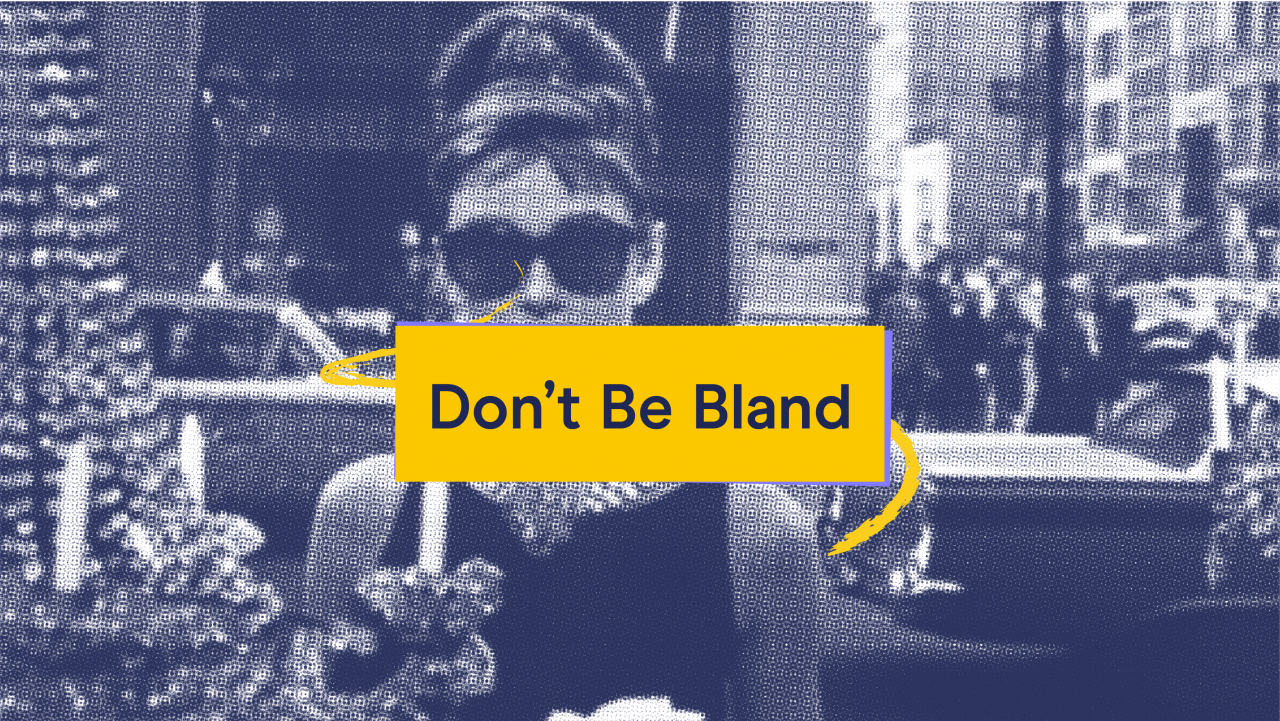
This year, we invited industry friends to be bland with us:
- Sophie Blowfield, Social Media Specialist
- Mark Pollard, Strategist
- Henry Mawuli Adobor, Creative at Bloom Interactive
- Richa Arora, Associate Director – Copy at ORGANIC by MSL
- Tracey Follows, Futurist and Founder/CEO of Futuremade
- Kate Toon, SEO Specialist
- Sulaiman Khan, Founder of This Ability
- Amy Kean, Culture Consultant
- Andrew Bloch, Founder of Frank
You can see all their brilliant contributions on our new Bland site. It’s totally mundane.
For the way they've adapted their communications to fit into our new world, what is a great ...
Brand?
Just look at how beautifully they communicated a change in their operations. So on brand too.
Nike, Durex, and Nando’s are also in the good books. They stayed bang on brand – and on message. Customers become fans because they buy into what a brand does (its product), what it stands for (its purpose), who it is (its personality), and how it tells its audience (its customers), all in a way they’ll find incredibly interesting (its tone of voice). If a brand changes any of those things in a panic, customers can panic because they don’t recognise who they’re a fan of anymore.
Campaign/Project?
St Luke’s Stay Home Now for the NHS.
I love an idea that seems so effortless and obvious. And effective.
Magazine?
I’m a big traveller (when the world allows it). I subscribe to travel magazines that must have faced quite a challenge creating an issue for each month we’ve all been in some form of lockdown.
Email newsletter?
Nothing to do with the times. I just wanted to give it a mention, because it’s a great read for copywriters and copy lovers.
Social media account?
Disney+.
Again, nothing to do with the times. They tweeted a wonderful thread that included all their channels and much-loved characters to announce their new platform launch.
On Favourites
What is your favourite …
Book on copywriting?
I have three:
How To Write Better Copy by Steve Harrison
Junior by Thomas Kemeny – not a junior? Not a problem – read it anyway
Macy’s, Gimbels, and Me: How to Earn $90,000 a Year in Retail Advertising by Bernice Fitz-Gibbon
Essay/article on copywriting?
Clare Barry’s Everyone’s a Copywriter
Quote about creativity?
“You can’t use up creativity. The more you use, the more you have.”
– Maya Angelou
Three favourite words?
All signed off.
A word/phrase often used in copy that makes you cringe?
All wrapped up.
Get ready. Christmas is coming and we’re about to see “All wrapped up” on everything everywhere. It’s so goddamn lazy. We didn’t make it as copywriters to all write the same line all the time. Bah humbug.
Find our short zine piece on the craft of copywriting, here.
Check out Vikki Ross on Twitter, where she created #copywritersunite and @copynights to connect copywriters, as well as #CopySafari to give brands and agencies a new way to learn.
Read Craft in the Age of Coronavirus – Sound Advice: a behind-the-stage look at the perfect – and in the age of the pandemic, unconventional – marriage of copy and graphic design.
Explore the DMA’s fight for the power of the word, and beyond. Learn more about our mission to prove the value of creativity in UK business, Government, and society through our campaign for Great British Creativity.
Ready to unleash your imagination, curiosity, and creativity? Explore our range of Copywriting and Creative courses.
Please login to comment.
Comments